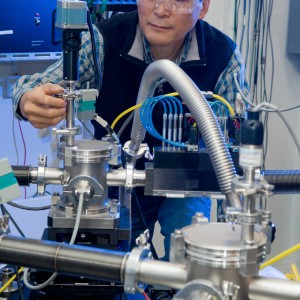There's nothing wrong with Xcel. In fact, they've got a pretty good track record of investing in alternative energy generation and infrastructure changes that will make it easier to build a sustainable energy future. But they aren't going to do the kind of research that IREE does. And they aren't going to research energy issues that don't affect their business—electricity.
Maggie Koerth-Baker at 10:55 am Wednesday, Mar 7What they don't do is long-term, big-picture science. This is the stuff that shapes our futures—and the futures of private corporations. If we abandon public funding for science, then we put all of that at risk.
Senator Julie Rosen, Chair, 651.296.5713
Senator Mike Jungbauer, Vice Chair, 651.296.3733
Senator Doug Magnus, 651.296.5650
Senator David Brown, 651.296.8075
Senator Dan Sparks, 651.296.9248
Senator Scott Dibble, 651.296.4191
Senator Mary Jo McGuire, 651.296.5537
Senator Jim Metzen, 651.296.4370
Senator Michelle Benson, 651.296.3219
Senator John Howe, 651.296.4264
Senator Ray Vandeveer coachfactorystore-bag.weebly.com, 651.296.4351
Senator Jeff Hayden http://goodcoachoutlet.weebly.com, 651.296.4261
Senator Amy Koch, 651.296.5981
Image: Geothermal energy research at Argonne National Laboratory, another important publicly funded research center, a Creative Commons Attribution Share-Alike (2.0) image from argonne's photostream
Privately-funded science—that is, usually, science done by corporations—is important. And it can't all be written off as inherently biased, either. The trouble, though, is that corporations have special concerns that influence what scientific research they undertake, and how they do it. In general, today, what they focus on is short-term stuff. They improve existing products. They figure out how to make nifty technology work in the real world.
In times of tight government budgets, there's a temptation to lawmakers to leave the expensive job of scientific research to corporations. I understand that urge. I can sympathize with it. But I also think that it's perilously wrong-headed.
Case in point: Since 2003, Minnesota has funded research on energy through the University of Minnesota's Initiative for Renewable Energy & the Environment (IREE). The scientists involved with this program do low-profile, but extremely important work, developing technologies (and methods for using those technologies) that affect every level of our energy systems. Right now, they're involved in everything from developing portable systems that turn farm waste into biofuel, to figuring out better ways to help houses use less energy. They're even collecting the complicated economic and physics data that will help us better understand the full environmental impacts of different fuels, batteries, and other energy sources and technologies. In the course of writing Before the Lights Go Out, my new book about the future of energy, I interviewed several of these scientists and learned a lot about the research they do. Some of their ideas won't pan out. Others will shape our energy future. But you don't know which is which until you put in the research effort—and this isn't the kind of research that private companies are willing to do.

Our energy problems are bigger than that. Our research into potential solutions needs to be broader than Xcel should be expected to cover. And it needs to be more forward thinking, and financially risky, than Xcel can reasonably be expected to undertake. There's nothing wrong with funding research at Xcel. But there is something wrong with de-funding research at the University of Minnesota.
Tomorrow, Minnesota state legislators in the Senate Energy, Utilities and Telecommunications Committee will vote on a bill called SF 2181. If it passes, the bill will de-fund the Initiative for Renewable Energy & the Environment. Instead, all state money for energy research will go to Xcel Energy, our local electric utility.
If you live in Minnesota, I urge you to contact the members of the Minnesota Senate Energy, Utilities and Telecommunications Committee TODAY. The vote is tomorrow, Thursday March 8. Let them know that public science is important work that can't be replaced by private science. In fact, we need both kinds of science happening, if we're going to meet the challenges of the future. A list of committee members—and their phone numbers—is after the jump.
http://coachfactorystore-bag.weebly.com
没有评论:
发表评论